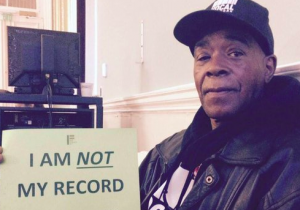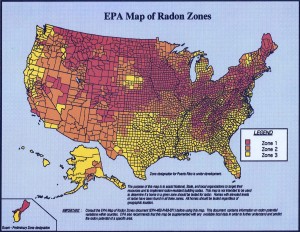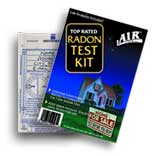This is an informational resource list. None of the following organizations have affiliation with the Metropolitan Tenants Organization.
Legal Organization Referrals
Evictions (tenant must be low-income)
Lawyers’ Committee for Better Housing …………..312-784-3527
Chicago Volunteer Legal Services (serves Spanish speakers)………………..…312-332-1624
Chicago Legal Clinic (retaliatory eviction only) (serves Spanish speakers)………773-731-1762
Advice before court or to get an extension to stay:
CARPLS Advice Desk Room 602, Daley Center located at Station 7 – Pro se defendants only
Kent Law School Advice Desk Room 602, Daley Center – Pro se defendants only
Illinois Legal Aid Online Pro Se www.IllinoisLegalAid.org www.AyudaLegalIl.org
Tenants in CHA or HUD housing or on a Section 8 program
LAC (must fit under income guidelines)…312-341-1070
(unit conditions ONLY)……………….312-229-6093
Cabrini Green Legal Aid……..312-738-2452
Security Deposit Defense
Chicago Legal Clinic (deposit must be $2500 & over) ($30 1st visit & court)….773-731-1762
Cabrini Green Legal Clinic (income guideline & $20.00 fee)……….312 738 2452
Lawyers Committee for Better Housing……(312) 784-3527
Tenants over 60 years of age
Chicago Department on Aging………312-744-4016
Tenants with Disabilities And Seniors
Mayor’s Office for People with disability up to age 59 ……….312-744-6673
Legal Clinic for the Disabled and seniors (must receive referral from Chgo. Dept. Of Aging)……. 312-908-4463
Center for Disability and Elder Law (they also cover legal issues beyond Tenant/Landlord)………312 376 1880
Community Counseling Centers of Chicago (C4)…………………………………………………………………..773-769-0205
National Alliance on Mental Illness of Chicago HELPLINE………………………………………………….312-563-0445
Tenants living in Logan Square or surrounding neighborhoods:
Micah Legal Aid……… …….773 463-6768
Tenants living in or around Uptown area 60640
Uptown People’s Law Office (Eviction Defense Only) ………… ………773-769-1411
Suburbanites with questions
CARPLS (Cook County, serves Spanish speaking tenants too)…… …..312-738-9200
Open Communities (North & Northwest Cook County Suburbs)…847-501-5760
Prairie State Legal Services DeKalb & Kane………..630-232-9415
Du Page……… ..630-690-2130
Kane………….…630-232-9415
Lake & McHenry………847-662-6925
Will………………815-727-5123
Peoria…………….309-674-9831
MTO Lawyer Referral List
PRIVATE ATTORNEYS
Aldon Patt (security deposit) ……….312-641-0885
Brian Gilbert (eviction, security deposit, and consumer defense)….872-216-4615
David Morris (security deposit, affirmative RLTO, class actions, retaliation, lockouts, illegal entry, trespass, and utility theft if $3000 or more is owed to tenant) Chicago, Mt. Prospect, Oak Park and Evanston………………312-986-3200
Hall Adams (bed bugs, must demonstrate via paper trail that the bed bug issue has occurred)……………….. 312-445-4900
Joan Fenstermaker (security deposit, retaliation, foreclosure, illegal lockouts and illegal late fees)…….312-371-6473 or http://givemebackmydeposit.com/
John Norkus (security deposit, unit conditions, evictions, consumer)…312-600-7457
Joseph F. Vitu ……….312-726-2323 (building conditions, personal injury)
Susan Ritacca …………… 872-222-6960
Philip J. DeVon…………… 773-217-8481 (security deposit, illegal lockouts, conditions)
Michael A. Childers (security deposit, other legal advice)………..312- 641-1900 (speak or leave message with Beverly Hadley)
Mike Radzilowsky (primarily evictions) …………312-986-0600
Morgan Cook (tenant-landlord law, debt collection defense)…………………….312-880-7215 or www.legalmcfirm.com
Paul Bernstein (security deposit).…1-866-769-2892
William Moore (security deposits, affirmative RLTO) ……………….. 708-268-3495
Chicago Bar Association (for other Attorney referrals)…………….312-554-2001
(Free Legal Advice every 3rd Saturday of the month & no income guidelines.)
Illinois Attorney Registration & Disciplinary Commission………….…. (312) 565-2600
Government & Other Resources
Ameritech Reverse Directory (to find landlord address)…………411
CEDA (weatherization program for low income)……………800-571-2332
Center for Conflict Resolution (Mediation)……………312-922-6464
CHAC Fraud Hotline…………………………..800-533-0441
CHA………………………………312-935-2600
Chicago Dept. on Aging + (disabled & tenants over 60)…………312-744-4016
Chicago Department of Childhood Lead Poisoning….(312) 747-5323
Chicago Dept. of Community Development……………………………311 or 312.744.5000
Chicago Housing Authority (CHA Housing and Sec. 8)…………312-742-8500
CHA Hotline (for complaints about CHA management)……………………1-800-544-7139
Circuit Court Clerk’s Office (to find out if you’re being sued)…………312-603-5030
Citizen’s Utility Board (complaints about utility bill)…………..…800-669-5556
Condo Owners………. 312-987-1906
Cook County Recorder of Deeds (Sale of Property Info)………312-603-5050
Cook County Sheriff’s Eviction Unit…………….312-603-3365
Cook County States Attorney Consumer Fraud………..312-814-3000
Department of Consumer Services (sec. deposit & utility theft complaints) …312-744-4090
Department of Human Services (emergency shelter)………312-746-5400
Eviction Court…………………..312-603-6486
Or cookcountyclerkofcourt.org (full docket search)
For Building Inspections & Emergency Rental Assistance…………..311 or 312-744-5000
HOME (Seniors needing help moving) …………..(773) 921-1332
MTO Hotline* – Tenants Rights …. 773-292-4988 (M-F, 1-5pm)
HUD Complaints about Section 8 Counselor……………….312-353-6236
HUD…………………………..312-353-7776
IL Commerce Commission (regulates utility providers)…………800-524-0795
Independent Police Review Authority (to file complaint against police) ……………… 312-745-3609
Lakeside CDC (condo owners)……………………..773 381 5253
LIHEAP (Low Income Home Energy Assistance Program)………..312-795-8800
Little Brothers Friends of the Elderly (social support for the elderly)…………312-455-1000
Pro Se Court, Rm 602, Daley Center (for claims up to $1500)……….312-603-5626
Rental Assistance & Utility Assistance………311 or 312.744.5000, ask for short term help
Shriver Center (victims of sexual & domestic assault)………….……..….312-263-3830
Small Claims Court (for claims between $1500 to $5000) .Civil Division…..312-603-5145
United States Postal Service……………………………….800-275-8777
Discrimination
Access Living (disability 226-1687TDD-hearing impaired)………312-640-2100
Chicago Lawyers’ Committee for Civil Rights Under Law………312-630-9744
Commission on Human Relations (all discrimination complaints)…312-744-4111
Illinois Department of Human Rights (Fair Housing Division)………………..312-814-6227
John Marshall Law School Fair Housing Legal clinic…………312-786-2267
Latinos United (referrals and trainings)………….312-226-0151
Foreclosure
newschicago.org or cookcountyassessor.com (to get PIN # of the property, then call recorder of deeds)
Recorder of Deeds……………………………………312-603-5050
(Give them PIN# to see if apt. has a case #, if it has a case number call Chancery Court 312-603-5133)
Neighborhood Housing Services (landlords facing foreclosure)…………….773-329-4010
Tenants in foreclosure (income guideline & costs)
Lawyers’ Committee for Better Housing (referral must be faxed).……312- 784-3507
(Statewide)……………………….855-207-8347
Low-Income Housing Resources:
www.ILHousingSearch.org
Bickerdike Apartments (low-income housing)…………………………………………773-227-6332
– Provides housing for low-income tenants.
Chicago Housing Authority…………………………………………………….. …….. (312) 742-8500
– The Housing Choice Voucher Program is a federal housing rental assistance program. It allows low-
income families to rent good housing in the private market. The voucher program pays a portion of their rent each month directly to the property owner or manager.
Cook County Housing Authority…………………………………………………………(312)542-4728
– Provides access to decent, safe, and affordable housing to low and moderate income individuals, families,
elderly and/or disabled within suburban Cook County.
Earthly Women Corp. ……………………………………………………………………..708 822 3786
– Serves women and single parents.
East Lake Management & Development Corp…………………………………..……..312.842.5500
– Offers affordable housing to tenants throughout the chicagoland area.
Habitat Corp……………………………………………………………………..…….….(312)527-5700
– Provides housing for low-income tenants.
Heartland Alliance……………………………………………………………………..….312- 660-1300
– They build and advocate for safe, high-quality housing and supportive services for people experiencing
homelessness, poverty, or chronic illness.
Hispanic Housing Development Corporation………………………………………… (312) 602-6500
– Provides housing for low-income families and the elderly.
Housing Opportunities and Maintenance for the Elderly (H.O.M.E.)………….……. 773-921-3200
– Committed to improving the quality of life for Chicago’s low-income elderly, Housing Opportunities and
Maintenance for the Elderly (H.O.M.E.) helps seniors remain independent and part of their community by
offering opportunities for intergenerational living and by providing a variety of citywide support services.
Housing Opportunities for Women…………………………………………….………(773) 465-5770
– Their goal is to help homeless women and children exit the homeless shelter system as quickly as possible
by providing rental subsidies to secure permanent housing. They also offer employment services.
IL Housing Development Authority……………………………………………….…… (312)836-5200
– Help create and fund affordable housing programs across the state.
Mercy Housing Lakefront Office………………………………………………………….312.447.4500
– To create stable, vibrant and healthy communities by developing, financing and operating affordable,
program-enriched housing for families, seniors and people with special needs who lack the economic
resources to access quality, safe housing opportunities.
Landlords seeking assistance
Chicago Rents Right…….………………312-742-7369
Spanish Coalition for Housing…………773-276-7633
Community Investment Corporation……………312 258 0070
or via email (preferred): taft.west@cicchicago.com
Neighborhood Housing Services (landlords facing foreclosure)…………….773-329-4010
Resources for Homeowners:
Partners In Community Building, Inc…………….312.328.0873
– Financial Literacy, Credit Repair, Other services
Translation Services:
Chinese American Service League (Translation, Southside)…………………312-791-0418
Chinese Mutual Aid (Translation, North side)……………………………………773-784-2900
Polish American Association……………………………………………..773-282-8206
Resources for writing letters or other areas of support (citywide)
LIFT- Chicago Uptown Office…………………………773-303-0700
LIFT- Chicago Pilsen Office……………………………312-994-8387
 One out of every three Americans has an arrest record. Nearly 50% of children have a parent with a criminal record. Housing policies that ban people with records disproportionately affects people of color and people with disabilities.
One out of every three Americans has an arrest record. Nearly 50% of children have a parent with a criminal record. Housing policies that ban people with records disproportionately affects people of color and people with disabilities.